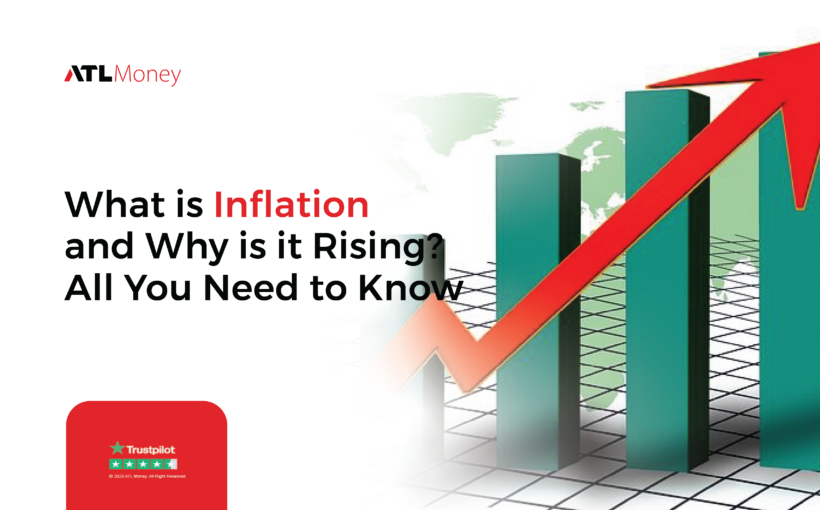When it comes to discussing international money remittance, the impact of inflation cannot be ignored. Inflation has significant implications for the value of money being sent across borders, and understanding its effects is quite important for anyone involved in international monetary transactions.
Inflation, the steady increase in prices of goods and services over time, is an event that affects economies worldwide. Understanding inflation and its causes is crucial for individuals and businesses alike, especially those involved in international money remittance.
Let’s delve into what inflation is and why it’s on the rise. Come on…
What is Inflation?
“Inflation refers to the gradual increase in the cost of goods and services over time”. At its core, inflation erodes the purchasing power of money. When prices increase, each unit of currency buys fewer goods and services. This can be particularly problematic for those who send money abroad, as it impacts both the amount sent and its value upon arrival.
Inflation can directly affect the value of remittances by eroding the purchasing power of the recipient. As inflation increases, the value of money decreases, meaning that the same amount of remittance received today will have less purchasing power compared to the past.
This is particularly important for recipients in countries with high inflation rates, as their ability to meet basic needs and maintain a decent standard of living can be significantly compromised. Therefore, remittance senders and recipients need to be aware of the impact of inflation on the value of money transferred across borders.
Factors Contributing to Rising Inflation
1. Excessive Monetary Growth: Central banks printing more money or lowering interest rates can flood the economy with liquidity, leading to higher demand but not necessarily matched by increased supply.
2. Supply Chain Disruptions: Events like natural disasters, geopolitical tensions, or pandemics can disrupt the production and distribution of goods, leading to shortages and price hikes.
3. Rising Energy Costs: Energy prices impact nearly every aspect of the economy, from transportation to manufacturing, and businesses often pass on these costs to consumers through higher prices.
4. Government Policies: Fiscal policies like increased government spending or tax cuts can stimulate demand in the short term but may also contribute to inflation if not matched by increases in productivity. Similarly, trade policies and tariffs can affect the cost of imported goods, impacting inflation rates.
Impact of Inflation on International Money Remittance
Inflation can have far-reaching effects on individuals and businesses engaged in international money remittance. For senders, inflation diminishes the value of the money sent abroad, reducing recipients’ purchasing power. It’s essential to consider inflation when sending money to ensure that recipients can afford essential goods and services.
Moreover, inflationary pressures can impact currency exchange rates, affecting the cost of sending money abroad. Exchange rates fluctuate in response to inflation differentials between countries. Higher inflation in one country relative to another can lead to depreciation of the currency, making remittances more expensive.
In conclusion, inflation has far-reaching implications for international money remittance. Understanding its effects and taking proactive measures to mitigate them is vital for both remittance senders and recipients. Governments and financial institutions play a crucial role in implementing policies and mechanisms to address the challenges posed by inflation in the context of international money remittance.
Senders must consider inflation when sending money abroad to ensure its value is preserved. As inflation continues to rise, staying informed and proactive is essential for effectively managing international remittances.
*Send Money Abroad Easily with ATLMoney. Enjoy the best exchange rates & quick payouts*
